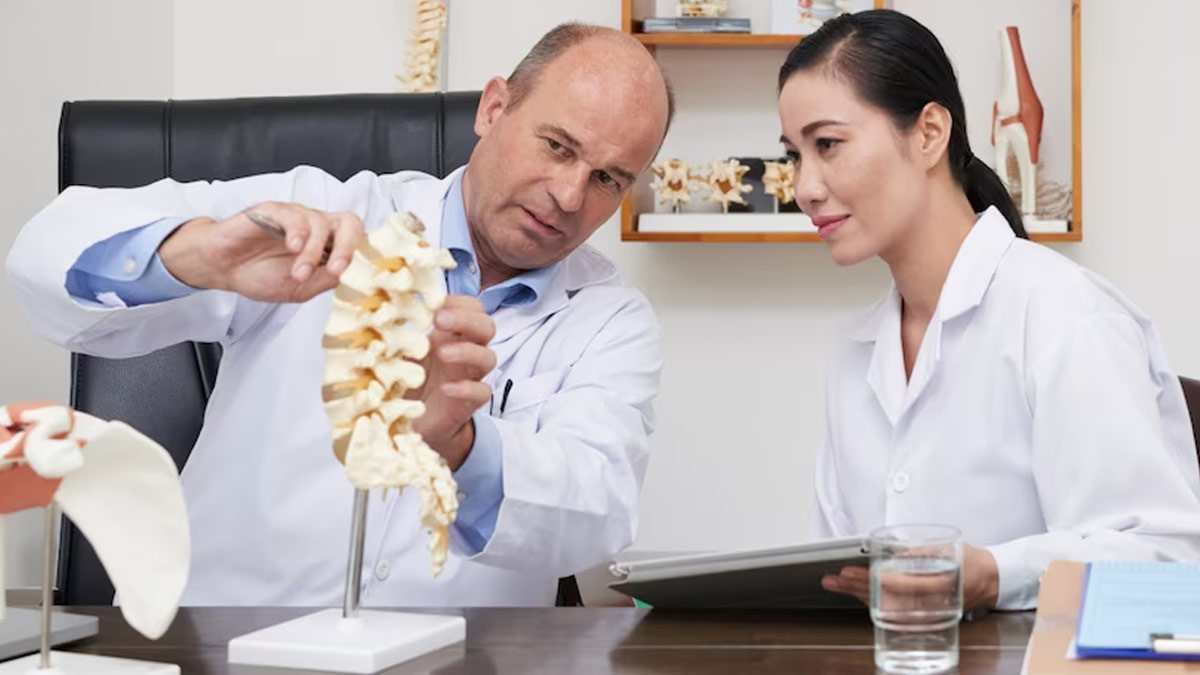
All of your body's organs are interrelated to each other, and the skeletal system is no exception. Your bones are affected by the food you consume and the hormones generated by your endocrine system. Even exercising with your muscles has an effect on your bones. In this article, Dr Rohit Lamba, Head of the Department and Senior Consultant Department-Bone, Joint Replacement and Orthopedics, Sanar International Hospitals, shared some tips to maintain your bone health.
Table of Content:-
Rest And Recovery
Dr Lamba said that rest and recovery are integral aspects of any sports regimen, and they are equally vital for maintaining bone health. Just like muscles and other bodily tissues, bones require time to repair and adapt to the demands placed on them during physical activities.
Bone Remodelling
According to study, bones are not inactive structures in the human body, they change over the course of a lifetime. This skeletal transformation is referred to as bone remodelling.
Also read: Osteoporosis During Pregnancy: Expert Lists Ways To Promote Bone Health
“One of the key benefits of adequate rest and recovery is bone remodelling. During this process, bones are repaired and strengthened, leading to improved density and overall health. This continuous renewal of bone tissue is essential for maintaining bone strength and resilience," Dr said.
Preventing Overuse Injuries
“Overuse injuries, such as stress fractures, often result from repetitive stress on bones. These injuries necessitate rest days and reduced activity to facilitate healing,” Dr. Lamba emphasises the importance of balancing physical activity with rest to avoid such injuries.
Hormonal Balance
Exercise can disrupt hormonal balance in the body, which can have implications for bone health. Proper rest and recovery are essential for maintaining hormonal equilibrium, which, in turn, supports healthy bones.
Reducing Inflammation
Physical activity can lead to inflammation in bones. Adequate rest plays a vital role in promoting healing and reducing the risk of chronic bone issues caused by persistent inflammation.

Supporting Muscle Health
Muscles and bones are interconnected, and strong muscles provide crucial support to bones. Rest days are instrumental in allowing muscles to recover, reducing the risk of injuries that could affect bone health.
Avoiding Overtraining Syndrome
Overtraining syndrome can have negative effects on bone health. Dr. Lamba advocates for balanced training programs that prioritise rest and recovery to safeguard against this syndrome.
Sleep Quality
Quality sleep is a critical component of the recovery process. During sleep, the body undertakes essential repair and regeneration activities, including those related to bone health.

Nutrient Absorption
Proper rest and recovery enable the body to absorb essential nutrients like calcium and vitamin D, which are vital for bone health. Continuous physical stress can impair nutrient absorption, emphasising the importance of rest in maintaining overall bone health.
Long-Term Bone Health
Significance of consistent rest and recovery throughout an athlete's career. This practice contributes to better long-term bone health, reducing the risk of bone-related issues in later life.
To complement the benefits of rest and recovery, Dr Lamba recommends focusing on proper nutrition. A well-balanced diet rich in calcium and vitamin D is essential for bone health. Dairy products, leafy greens, nuts, and fortified foods are excellent sources of calcium, while vitamin D can be obtained from sunlight, supplements, or certain foods like fatty fish and fortified dairy products.
Also read: 7 Foods To Eat For Healthy Bones
Hydration is important, as water facilitates the transport of nutrients to the bones. Dehydration can negatively impact bone health, making it essential to maintain adequate hydration before, during, and after workouts.
Dr Lamba also highlights the importance of maintaining proper form and technique during workouts to prevent injuries that could affect bones and joints negatively. Additionally, he advises against overtraining, as this can lead to stress fractures and other bone-related injuries. Listening to one's body and providing it with the rest it requires is crucial.
For those with specific concerns or health conditions that may affect bone health, Dr Lamba recommends consulting a healthcare professional or a certified fitness trainer. These experts can offer personalised guidance and recommendations tailored to individual needs.
Also watch this video
How we keep this article up to date:
We work with experts and keep a close eye on the latest in health and wellness. Whenever there is a new research or helpful information, we update our articles with accurate and useful advice.
Current Version